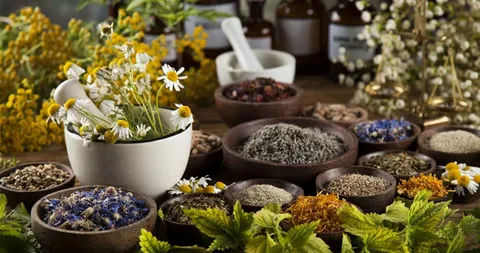Herbalism is an ancient form of medicine that has been used for centuries to treat various ailments. While it has been criticized in recent years due to a lack of scientific evidence, it is still an important part of Melbourne’s health landscape. This blog post will explore the challenges and rewards of practicing Herbal Medicine Melbourne diverse health industry. It will consider how traditional herbal remedies can be blended with modern science to create powerful treatments for a variety of conditions.
Understanding the Role of Herbalism in Melbourne’s Health Landscape
Herbalism plays a significant role in Melbourne’s diverse health landscape, providing an alternative approach to healing and wellness. While modern medicine often relies on pharmaceuticals and invasive treatments, herbalism offers a more natural and holistic approach to health.
Herbalists in Melbourne work to understand the root causes of ailments and seek to address them through the use of herbs, plants, and other natural remedies. They believe in the body’s innate ability to heal itself when given the right tools, and herbalism provides those tools.
In a city known for its multiculturalism, herbalism has found a place among various communities, each with its cultural traditions and remedies. It offers an opportunity for individuals to reconnect with their cultural heritage and utilize remedies that have been passed down for generations.
The Challenges of Practicing Herbalism in a Diverse Community
Practicing herbalism in a diverse community like Melbourne comes with its own set of challenges. One of the main obstacles faced by herbalists is the need to cater to the specific needs and beliefs of various cultural communities. Melbourne’s multicultural landscape means that herbalists must be knowledgeable about the different cultural traditions and remedies that are valued by each community.
Language barriers can also pose a challenge when practicing herbalism in a diverse community. Herbalists may need to rely on interpreters or language services to effectively communicate with patients who do not speak English fluently. This can make consultations and treatment planning more complex and time-consuming.
Another challenge faced by herbalists is the skepticism and criticism from the scientific community and mainstream medicine. Herbalism is often regarded as a pseudoscience due to the lack of scientific evidence supporting its efficacy. Herbalists must constantly defend their practices and strive to bridge the gap between traditional knowledge and modern research.
Integrating Traditional Knowledge and Modern Research
Integrating traditional knowledge and modern research is crucial in the practice of herbalism in Melbourne’s health industry. While traditional remedies have been used for centuries, the field of herbalism has evolved to incorporate scientific research and evidence-based practices. This integration allows herbalists to create powerful treatments that blend the wisdom of ancient traditions with the advancements of modern science.
By combining traditional knowledge with modern research, herbalists in Melbourne can validate the effectiveness of their remedies and gain credibility in the scientific community. They can identify active compounds in herbs, study their mechanisms of action, and understand how they interact with the human body. This scientific understanding helps herbalists to develop targeted treatment plans that address specific ailments.
Integrating traditional knowledge and modern research also enables herbalists to enhance the safety and efficacy of their treatments. They can identify potential herb-drug interactions and contraindications, ensuring that their patients receive the most appropriate and effective care. Furthermore, by staying up-to-date with scientific advancements, herbalists can adapt their practices and incorporate new knowledge into their treatments.
Navigating Legal and Regulatory Obstacles as a Herbalist in Melbourne
Navigating legal and regulatory obstacles is a significant challenge for herbalists practicing in Melbourne. The regulation of herbal medicine can be complex, with different rules and requirements varying from state to state. This creates a need for herbalists to stay up-to-date with current regulations and ensure that they are practicing within the legal framework.
One of the main challenges faced by herbalists is the lack of recognition and standardization of their profession. Unlike mainstream medicine, herbalism is not universally regulated or licensed, which can lead to confusion and skepticism from both patients and other healthcare professionals.
To practice legally and ensure the safety and effectiveness of their treatments, herbalists must adhere to certain guidelines and regulations. This includes sourcing herbs from reputable suppliers, adhering to proper labeling and packaging requirements, and maintaining accurate records of their consultations and treatments.
Rewards of Herbalism Practice: Personal and Professional Fulfillment
Herbalism practice offers not only the satisfaction of helping others heal but also personal and professional fulfillment for practitioners. The rewards of herbalism go beyond the physical healing it provides; it encompasses a deeper connection to nature, a sense of purpose, and the joy of witnessing positive transformations in patients.
On a personal level, herbalists often find solace and fulfillment in working with plants and natural remedies. The act of cultivating and preparing herbs can be a deeply meditative and spiritual experience, allowing herbalists to forge a closer connection to nature and its healing powers. Additionally, witnessing the positive impact that herbal remedies have on their patients’ lives brings a great sense of joy and fulfillment.
Professionally, herbalism practice offers a unique opportunity for practitioners to carve out their niche in the healthcare industry. As a field that bridges traditional knowledge with modern research, herbalists can offer holistic and individualized care that goes beyond the scope of conventional medicine. This allows herbalists to make a meaningful difference in their patient’s lives and establish long-lasting relationships built on trust and shared values.
Bridging the Gap between Integrative Medicine Melbourne and Conventional Medicine
The practice of Integrative Medicine Melbourne has often been viewed as separate from conventional medicine. However, there is growing recognition of the need to bridge the gap between these two approaches to healing. As the field of herbalism continues to evolve and incorporate modern research, there is an opportunity to integrate traditional remedies with evidence-based practices.
Bridging the gap between herbalism and conventional medicine involves fostering collaboration and open-mindedness. It requires both herbalists and conventional healthcare professionals to engage in dialogue, share knowledge, and work together to provide the best possible care for patients. By recognizing the strengths of both approaches, we can create a more holistic and comprehensive healthcare system.
Furthermore, bridging the gap allows for a more personalized and patient-centered approach to healing. Integrative medicine, which combines herbalism with conventional treatments, can provide a wider range of options for patients, addressing their unique needs and preferences.
Opportunities and Risks for Herbalist Melbourne
In today’s digital age, herbalism practitioners in Melbourne are presented with both opportunities and risks. The advent of technology has opened up new avenues for herbalists to reach a wider audience and connect with potential patients. Social media platforms, websites, and online marketplaces provide a platform for herbalists to showcase their expertise, share information about their practice, and even sell their products.
The internet also offers a wealth of knowledge and resources that herbalists can utilize to enhance their practice. Online research articles, databases, and forums allow herbalists to stay up-to-date with the latest research and advancements in the field. This information can be incorporated into their treatments, providing patients with evidence-based care.
Furthermore, the internet also exposes Herbalist Melbourne to increased scrutiny and criticism. Critics of herbalism often utilize online platforms to voice their opinions and challenge the effectiveness and safety of herbal remedies. Herbalists must be prepared to address these criticisms and engage in meaningful dialogue to advocate for their practice.
FAQs
1. Are herbal remedies safe to use?
Herbal remedies can be safe when used appropriately and under the guidance of a qualified herbalist. It’s important to remember that herbs are powerful and should be used with caution. Herbalists are trained to understand the potential side effects and interactions of herbs, as well as to determine the correct dosage for each individual. It is not recommended to self-diagnose and self-prescribe herbal remedies without consulting a professional.
2. Can herbal medicine treat serious illnesses?
Herbal medicine can be used as a complementary therapy for serious illnesses, but it is not a substitute for conventional medical treatment. Herbalists work in collaboration with other healthcare providers to provide a holistic approach to healing. They may recommend herbal remedies to support conventional treatment and help manage symptoms, but it’s crucial to follow the advice of your primary healthcare provider.
3. Are herbal remedies regulated by the government?
The regulation of herbal remedies varies from country to country and even within different states or regions. In Melbourne, herbalists are required to adhere to certain guidelines and regulations to ensure the safety and quality of their products and treatments. It’s important to choose a herbalist who is a member of a recognized professional association and who follows ethical practices.
Conclusion
In a city as diverse as Melbourne, the practice of herbalism faces its fair share of challenges. From navigating cultural traditions and language barriers to addressing skepticism from the scientific community, herbalists in Melbourne have had to persevere to establish themselves as valued healthcare practitioners.



